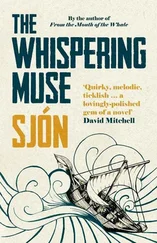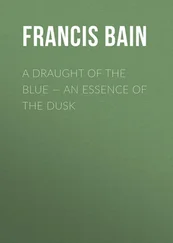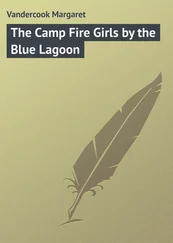‘Abba…’ she said, so emptily that they shuddered, but she could give no further account of herself, despite being questioned. The salvage men realised that she was a simpleton, and some thought she looked as if she was carrying. They brought the girl and bundle ashore and delivered them into the hands of the sheriff’s wife. There she was given food and allowed to sleep two nights in a bed before being dressed in fresh clothes and sent to Reykjavik.
The salvage team was still busy on the third Sunday in June when the mail ship Arkturux rounded the cape of Reykjanes. As she passed the wreck of the oil ship, the passengers gathered at the rail to gaze at the colossus that lay stranded in the bay.
The oil porters took a break from their work and waved to the passengers, who waved back blearily, newly emerged from three days’ filthy weather north of the Faroes.
Among the passengers was a tall young man. He had a brown-checked woollen blanket round his shoulders, a grey bowler hat on his head and a long-stemmed pipe in his mouth.
He was Fridrik B. Fridjonsson.
Herb-Fridrik fills his pipe and contemplates the bundle that sits on the parlour table where the coffin had rested an hour before. It is wrapped in black canvas and tied up with three-ply string — which has held up well despite not having been touched for over seventeen years — and measures some sixteen inches high, twelve inches long and exactly ten wide. Fridrik grasps the bundle firmly, raises it to head height and shakes it against his ear. The contents are fixed, weight around ten pounds, nothing rattles inside. Any more than it ever has.
Fridrik puts it back on the table and goes into the kitchen. He pokes a match into the stove and carries the flame to his pipe, lighting it with slow, deliberate sucks. The tobacco crackles, he draws the first smoke of the day deep into his lungs and announces to thin air as he exhales:
‘Umph belong Abba.’
‘Umph’ could mean so many things in Abba language: box, chest, casket, ark or trunk, for example.
Fridrik has long had his suspicions as to what the bundle contains — he has often handled it — but only today will his curiosity be satisfied.
***
Fridrik crossed paths with Hafdis three days after his arrival in Iceland. He was on his way home from a dinner engagement, a gargantuan coffee-drinking session and singsong at the home of his former tutor, Mr G—. He let his legs decide the route. They swiftly bore him up from Kvosin, out of town, south over the stony ground and down to the sea where he ran along the ocean shore, yelling to bright infinity:
‘I pay homage to you, ocean, o mirror of the free man!’
It was Midsummer’s Eve, flies were swinging on the stalks, a ringed plover piped and the rays of the midnight sun barred the grass.
In those days the capital was small enough that a sound-limbed man could walk around it in half an hour, so Fridrik was soon back where his evening stroll had started — on the track behind the house of the old, grey tutor, Mr G—. The cook’s son came out of the back door, taking care not to drop a tray bearing a tin cup, potato peelings, trout skin and a hunk of bread; leftovers from the feast earlier in the evening.
Fridrik paused when he saw the boy take this to a tumbledown shed, which leant up against another slightly larger outhouse in the back yard. There the boy opened a hatch and eased the tray inside. From the lean-to came a scrambling and snorting, a clatter and grunting. The boy snatched back his hand, slammed the hatch and hurried away, bumping straight into Fridrik who had entered through the gate.
‘What have you got there, a Danish merchant?’
He said this in a mock-serious tone to soften its severity. The youth gaped at Fridrik as if he were one of Baron Munchhausen’s moon men, then answered grumpily:
‘Oh, I reckon it’s that hussy what did away with her child last week.’
‘You don’t say?’
‘Yes, the one what was taken in the graveyard, burying the child’s corpse in Olafur “student” Jonsson’s grave.’
‘And why is she here?’
‘I ’spect the bailiff asked his cousin to hold her. They hardly dare put her in the gaol with the men, says Mother.’
‘And what’s to be done with her?’
‘Oh, I ’spect she’ll be sent to Copenhagen for punishment, and sold to the lowest bidder when she comes back. If she comes back.’
The lad darted a shifty glance around and pulled a small snuff horn from his pocket.
‘Anyhow, I’m not s’posed to talk about what I hear in the house…’
He raised the horn to one nostril and sniffed with all his might. With that the conversation was at an end. While the cook’s son struggled with his sneeze, Fridrik went over to the lean-to. Squatting down, he pulled the cover from the hatch and peered inside. It was dim but the summer night cast enough blue light through the roof slats for his eyes to grow accustomed to the gloom, and he made out the figure of a woman in one corner. It was the prisoner.
She sat on the earthen floor with her legs straight out in front of her, hunched over the tray like a rag doll. In one small hand she held a strip of potato peel that she was using to push together fish-skin and bread, which she then pinched, raised to her mouth and chewed conscientiously. She took a sip from the tin cup and heaved a sigh. At that point Fridrik felt he had seen more than enough of the unhappy creature. He fumbled for the cover to close the hatch, bumping his hand on the wall with a loud knock. The figure in the corner became aware of him. She looked up and met his eyes; she smiled and her smile doubled the happiness of the world.
But before he could nod in return, the smile vanished from her face and was at once replaced by a mask so tragic that Fridrik burst into tears.
***
Fridrik unties the knot, winds the string round the fingers of his left hand, slides the coil over his fingertips and slips it into his waistcoat pocket. He unwraps the canvas from the bundle. Two packages of equal size come to light, wrapped in waxed brown paper. He lays them side by side and opens them. The contents of each appear to be the same: black wooden tablets, twenty-four in each pile. He turns over the tablets like cards from a pack, and notes that they are painted black on one side, white on the other; not all of them, however, because in one pile some of the tablets are black and green, while in the other they are black and blue. He scratches his beard.
‘Well, Abba-di, it’s quite something, this picture puzzle that you’ve carried through life…’
And now a strange and intricate spectacle unfolds in the little parlour at Brekka in the Dale. The master of the house handles each piece of the puzzle with care, examining it from every angle; the green and blue faces have lettering on them — a sentence in Latin — which simplifies the game.
He begins the jigsaw.
Starting with the blue tablets.
Fridrik B. Fridjonsson studied natural history at the University of Copenhagen from 1862 to 1865. Like so many of his countrymen, he did not finish his degree, and for his last three years in Denmark he was a regular employee of the Elefant Pharmacy, then under the management of the pharmacist Ørnstrup, in Store kongsgade. There Fridrik worked his way up to the position of medical assistant, helping with the pharmacist’s catalogue of inebriants: ether, opium, laughing gas, fly agaric, belladonna, chloroform, mandragora, hashish and coca. In addition to being used for various cures, these substances were greatly favoured by the lotus-eaters of Copenhagen.
The lotus-eaters were a group who modelled their way of life on the poetry of French writers such as Baudelaire, de Nerval, Gautier and de Musset. They threw parties — which gave birth to many rumours, but few attended — at which narcotic plants bore away the guests swiftly and sweetly to new worlds, both in flesh and in spirit. Fridrik was a frequent guest at these gatherings, and once, when they stood up from their ether-driven roller-coasters, he announced to his travelling companions:
Читать дальше












